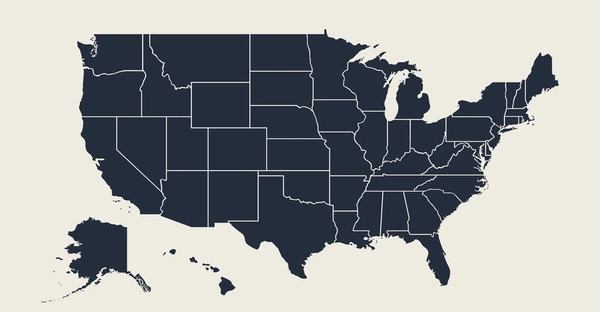State sales tax rates and regulations, as well as vehicle tax for a new car, can significantly impact the total cost of buying a vehicle. For many buyers, these taxes come as a surprise when they see the final price.
While you might have a set budget in mind and feel confident about the cost of the car itself, the addition of sales tax, vehicle tax, and other state-specific fees can quickly inflate that number.
It’s easy to overlook how much these extra costs can add up, especially when you’re focused on negotiating the price or picking out that perfect color and model. But in reality, depending on where you live, the sales tax can sometimes add hundreds—if not thousands—of dollars to the final bill.
Different states have different tax rates, and in some places, certain types of vehicles, like electric cars or luxury models, may be subject to additional taxes or fees. In some states, you may even have to pay a special “luxury tax” on higher-priced cars or a “gas guzzler” tax on vehicles that don’t meet certain fuel efficiency standards.
And let’s not forget about the potential for hidden fees, like registration fees or local taxes, which can vary by county or city. All of this can leave buyers feeling like they’ve been blindsided by costs they weren’t fully prepared for.
That’s why it’s important to do your homework ahead of time. Understanding your state’s sales tax rates, vehicle tax for a new car, and other fees can help you avoid any unwelcome surprises and better plan your budget when it comes to making a big vehicle purchase.
In 2025, shoppers across the U.S. are facing a dynamic landscape of updated sales tax rates and evolving incentives, making it more important than ever to pay attention to the fine print, the Florida Department of Revenue said.

Some states are introducing higher rates or phasing out tax breaks, while others are offering fresh incentives for eco-friendly vehicles, like electric and hybrid models, according to AFDC Energy.
Whether you’re eyeing a sleek new EV, a family-friendly SUV, or a rugged truck for your weekend adventures, these changes could mean the difference between locking in a deal that fits your budget and one that leaves you scrambling.
For anyone preparing to buy, staying informed on these updates isn’t just smart, it’s essential for planning your purchase, avoiding costly surprises, and making the most of your hard-earned dollars.
What Is Sales Tax, and Why Does It Matter?
Sales tax is a state-imposed percentage applied to the purchase price of goods, including vehicles. The rate varies depending on the state and, in some cases, the county or city.
For vehicle purchases, sales tax is calculated based on the purchase price, minus any trade-in credits, and may include additional fees like delivery charges. Vehicle tax for a new car can also be applied, adding another layer to the total cost.
For example, Florida has a state sales tax rate of 6%, and counties may impose additional discretionary surtaxes. The total tax is applied to the purchase price after deducting any trade-in value.
Some counties charge a local discretionary sales surtax, which is calculated on motor vehicles when the residence address of the purchaser is located within a discretionary surtax county, according to Florida Highway Safety and Motor Vehicles.
In California, the statewide base sales tax rate is 7.25%, and local jurisdictions can add their own taxes, resulting in higher rates in some areas. The tax is calculated on the sales price of the vehicle, and no credit is allowed for trade-in vehicles, the Florida Department of Revenue said.
Given the variations in sales tax rates and regulations, it’s advisable to consult your state’s Department of Revenue or a tax professional for the most accurate and up-to-date information.
Key factors influencing vehicle sales tax include:
- Location: Some states, like Oregon and New Hampshire, impose no sales tax, while others, like California, have higher rates.
- Vehicle Type: Different rates may apply to electric vehicles (EVs), hybrids, or luxury cars.
- Incentives: Certain states offer tax credits or reduced rates for EVs or specific types of vehicles.
Changes to Sales Tax Rates in 2025
Higher Rates in Some States
Several states, including Texas and California, have implemented sales tax rates that impact vehicle purchases. In Texas, the state sales tax rate is 6.25% of the vehicle’s purchase price, minus any trade-in allowance, according to the Texas Comptroller. For example, purchasing a $40,000 vehicle would result in a $2,500 sales tax.
In California, the base state sales tax rate for vehicle purchases is 7.25%, but local jurisdictions can impose additional sales taxes, resulting in varying rates across different areas.
For instance, in Los Angeles County, the total sales tax rate can go up to 10.25% when local taxes are included. Therefore, the total sales tax for a $40,000 vehicle in Los Angeles County would be $4,100 ($2,900 state tax + $1,200 local tax).
To view car sales tax by state, click here.
It’s important to note that these sales tax rates are subject to change, and additional fees such as title transfer and registration may apply. For the most accurate and up-to-date information, it’s advisable to consult the respective state’s Department of Revenue or a tax professional.

New EV Incentives
To encourage the adoption of electric vehicles (EVs), several states have implemented sales tax exemptions or reductions. For instance, New Jersey previously offered a full sales tax exemption on zero-emission vehicles (ZEVs).
However, as of October 1, 2024, this exemption has been phased out, and EV purchases are now subject to a reduced sales tax rate of 3.3125%. This rate is scheduled to increase to the full sales tax rate of 6.625% by July 1, 2025, according to the New Jersey Official Site.
Similarly, Colorado has provided incentives to promote EV adoption. As of January 1, 2025, the state offers a $3,500 tax credit for the purchase or lease of a new EV or plug-in hybrid vehicle. Additionally, vehicles with a manufacturer’s suggested retail price (MSRP) under $35,000 qualify for an extra $2,500 rebate, effectively reducing the cost of these vehicles, Boulder Nissan said.
These initiatives aim to make EVs more accessible to consumers, thereby supporting environmental sustainability and reducing greenhouse gas emissions.
Local Adjustments
Several states have implemented local sales tax surcharges that affect vehicle purchases. In Illinois, the statewide sales tax rate is 6.25%, with an additional 1% surcharge in Cook County, which includes Chicago. This results in a combined sales tax rate of 7.25% for vehicle purchases in Chicago, Car and Driver said.
In Arizona, the state imposes a Vehicle License Tax (VLT) on vehicle purchases, which varies based on the vehicle’s value and age. While Arizona does not have a specific sales tax on vehicle purchases, the VLT serves as a form of taxation on vehicle ownership, according to the Arizona Department of Revenue.
It’s important to note that tax rates and regulations can change over time. For the most accurate and up-to-date information, it’s advisable to consult the respective state’s Department of Revenue or a tax professional.
Calculating Vehicle Sales Tax
To estimate your vehicle’s sales tax:
- Determine the Purchase Price: Start with the final negotiated price minus any trade-in value.
- Check Your State’s Rate: Include state and local sales tax rates.
- Account for Incentives: Adjust for any exemptions or reduced rates if purchasing an EV or qualifying for other incentives.
Online tools like the Sales Tax Calculator by NerdWallet or DMV-specific calculators can provide precise estimates tailored to your purchase details.
What This Means for Buyers
Understanding your state’s tax rates and local policies can lead to significant savings when purchasing a vehicle. Many states offer tax benefits for trade-ins, allowing you to pay sales tax only on the difference between the new vehicle’s price and your trade-in’s value.
For example, if you trade in a vehicle valued at $10,000 in a state with a 7% sales tax rate, your taxable amount decreases by $700, resulting in substantial savings, Moterenn said.
Additionally, several states provide incentives for electric vehicle (EV) purchases. For instance, Colorado offers a $3,500 tax credit for new EVs purchased or leased after January 1, 2025. Vehicles with a manufacturer’s suggested retail price (MSRP) under $35,000 qualify for an extra $2,500 rebate, effectively reducing the cost of these vehicles, according to the Tax Foundation.
Similarly, New Jersey previously offered a full sales tax exemption on zero-emission vehicles (ZEVs). However, as of October 1, 2024, this exemption has been phased out, and EV purchases are now subject to a reduced sales tax rate of 3.3125%.
This rate is scheduled to increase to the full sales tax rate of 6.625% by July 1, 2025, the Tax Foundation said.
Resources to Stay Informed
Navigating sales tax changes doesn’t have to be overwhelming. Use these resources to stay updated:
- The Tax Foundation: A reliable source for annual updates on state tax policies.
- U.S. Department of Energy’s Alternative Fuels Data Center: Information on EV tax incentives by state.
- Local DMV Websites: Access state-specific sales tax rates and exemptions.
- AAA’s Car Buying Services: Includes tools and guidance for calculating total vehicle costs.
Whether you’re buying your first car or upgrading to an electric vehicle (EV), understanding how state sales tax impacts vehicle purchases is crucial. In 2025, these factors are more dynamic than ever, with each state offering its own set of tax rules, exemptions, and incentives.
Sales tax can significantly influence the overall cost of your vehicle, especially as EV incentives and tax rebates continue to evolve.
For instance, many states now offer tax credits for purchasing EVs, but the availability and amount of these credits vary, with some offering rebates at the point of sale and others providing deductions when you file taxes.
Additionally, some states may exempt certain EVs or hybrid vehicles from sales tax altogether, while others may apply special tax rates to encourage more sustainable transportation options. On the flip side, traditional gas-powered vehicles may not have such perks, and their tax rates could be higher in some regions.
By staying informed about these nuances, you can better navigate your vehicle purchase, whether it’s an eco-friendly EV or a reliable gas-powered model. Taking advantage of available incentives, whether through tax credits, exemptions, or rebates, can result in significant savings.
This knowledge enables you to make smarter financial decisions that align with your needs and goals, ensuring you get the best value for your investment, no matter what type of vehicle you choose.
Want to stay informed about state sales tax changes and their impact on vehicle purchases?
Visit the Tax Foundation’s report on 2025 state tax changes for the latest updates and details.



